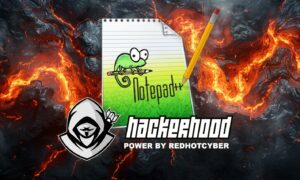
Zero-Click Attack on Notepad++. HackerHood Tested the Exploit and It Really Works with Little
A dangerous vulnerability has been discovered in the latest version of the popular text editor Notepad++ that allows an attacker togain complete control over the system. The vulnerability has been identified as CVE-2025-49144 and affects version 8.8.1 of the installer, released on May 5, 2025. The issue is related to the “binary file replacement” technique, where the installer accesses executable files from the current working directory without proper verification. Researchers have discovered that an attacker can install a malicious file, such as a modified regsvr32.exe file, in the same folder where the installer is located. Upon startup, the installer will automatically download the malicious







